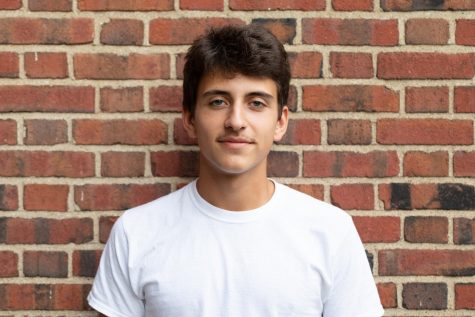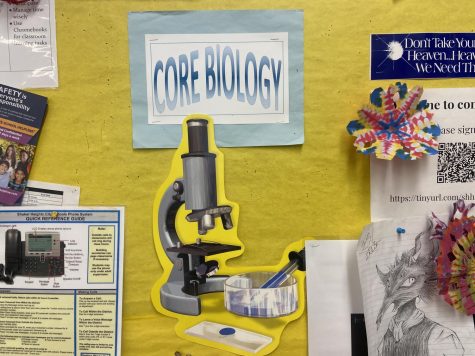Preparing Newcomers for the Road Ahead
Communicating Shaker culture key to helping new faculty
The Board of Education had received a pressing message. The subject field read: “Revise On-boarding.” The July 10 memorandum, filed by Chief of Staff Marla Robinson, outlined plans for improving the teacher integration process.
“On-boarding is much more than completing forms,” the message stated. The new plans outline an on-boarding during the week before school started, that people new to the district attended. There, teacher-based teams — designated by subject — planned the first weeks of school. They discussed things such as the curriculum and new regulations. They also reviewed MYP standards and International Baccalaureate protocol.
The on-boarding process serves many purposes, the foremost being, “Fostering an in-depth understanding and acceptance of an organization’s culture, values, expectations and priorities.”
The district hoped to inform each “new team member” of “[Shaker’s] mission, vision, goals, policies, practices, structures and functions… One important aspect of on-boarding is to assist a new team member with the acclimation to the culture of our district.”
Long-term substitutes, like all substitutes, are certified teachers equivalent to permanent teachers in every way except that, once the permanent teacher returns, they lose their positions.
Before U.S. History and Economics teacher Bradley Bullard came to Shaker, he was required to engage in special training. Bullard went to a three-day International Baccalaureate training program in Toronto and appeared at meetings of varying importance during the summer. All of the new teachers also attended on-boarding the week before school started.
One benefit of having that week to prepare, Bullard said, was collaboration. “We learned to work better together, as a team.” He was also glad to “be able to hear people in the administration talk about their ideas and their visions for the future.”
James Casale is a long-term substitute in the English Department. He attended the week of on-boarding this year.
“They introduced the new teachers to the Shaker philosophy and community. There was a panel of students and residents who answered questions,” he said. “There was a general embracement of the Shaker ideology.”
Victoria Berndt, the long-term history substitute for social studies teachers Jessica O’Brien and Paul Kelly, attend the preparatory week. O’Brien was also able to go. It was the “first time somebody was there who taught the class I was covering for. It was very helpful,” Berndt said.
Berndt said she thought it would be “extremely stressful” to come into the district without some sort of introduction like the one she experienced.
Berndt taught at Riverside High School in Painesville Township for a year before coming to Shaker. She said the introduction process at Riverside was extremely stressful for her. There was no introduction process like the one offered at Shaker and she had little time to acclimate herself. “It is very hard to get placed in a district and just go,” she said.
Berndt believes that Shaker operates a more effective on-boarding program for long-term substitutes and new teachers than most districts.
It is more difficult “coming in mid-year if there is a strong attachment to the teacher,” said Casale, “or if my teaching style conflicts with that of the previous teacher, it can be more difficult to integrate.”
For substitutes who are take over classes for shorter periods, adapting to the Shaker culture is less of a problem. Many are not briefed on the classroom curriculum. Long-term substitutes are different. They instruct the class, and they get to know their students. Most of them have contracts lasting a semester or longer.
Shaker is known for a unique academic culture revolving around the interactions between teachers and students. The district website states, “We believe: each student is valued. Every student must succeed. Diversity makes us stronger. Breadth of experience is vital… We are all accountable.”
The philosophy continues: “The District will nurture, educate, and graduate students who are civic-minded and prepared to make ethical decisions; who are confident, competent communicators, skillful in problem solving, capable of creative thinking; who have a career motivation and a knowledge of our global and multicultural society.”
The Shaker culture poses a challenge to newcomers, be they teachers or students. Dale Whittington, director of research and accountability, spoke Dec. 3 at the Bridging the Gap panel facilitated by the Student Group on Race Relations. “We are not that effective in enabling people to acclimate to Shaker,” she said, referring to students and families new to the district. “We make it that much more difficult to become part of the district life and adopt our district’s values and ways.”
This is why so many find the on-boarding week so helpful.
“I do not find it too difficult because my philosophy of education is in accordance with those of Shaker,” Casale said. “The one difficulty is that there is an expectation for me to teach a curriculum with certain aspects such as time restrictions, that limit other instructional techniques that I would typically employ. Because the honors curriculum here is so rigorous and extensive, I cannot add my own units. I cannot do choice literature [discussion] circles, which promotes creativity and personal choice.”
“As a substitute, it is hard to combat a culture that is so firmly established,” he continued. “The problem [with after-school conferences] is that class time is often not as valued because students can go to conferences. They can cut classes and such because they have that safety net.”
Babcock has taught as many days at the high school as any other new teacher. He will, most likely continue in a similar manner throughout the year. However, all of the new permanent instructors received a week of preparation. Mentor teachers will also guide them throughout the year. These mentors are required to spend 18 hours over the school year with their mentee; providing guidance about anything they can, while observing them and giving feedback.
Long-term substitutes receive few benefits compared to teachers. Generally, their salary is lower, and they lack job security. Also, long-term substitutes are not given the right to a interview for a job should one become available at the conclusion of his or her service.
Long-term substitutes are not eligible to join the Shaker Heights Teachers Association — the teachers’ union. Substitutes are hired through a service called Rachel Wixey & Associates, which guarantees some benefits, but not as many as teachers receive.
Even with prior knowledge of Shaker, it took science teacher James Schmidt a year to fully adopt the Shaker culture, he said. He estimated that it could take three years for a teacher coming in without that exposure. “People come to Shaker for the schools, there are very high standards and expectations for our educators. It’s often tough for new teachers to understand this,” he said.
Not every long-term absence can be anticipated, however. Eric Babcock was hired as a mathematics long-term substitute the day that school started and thus did not attend the on-boarding sessions. “There is a lot of uncertainty,” coming in with that little notice, Babcock said.
Calls seeking comment about the district’s procedures for hiring and supporting long-term substitutes on short notice were not returned.
“Even with a highly-skilled hire,” read the memorandum written by Robinson, “failure to acculturate and transition successfully can have disastrous results.”





